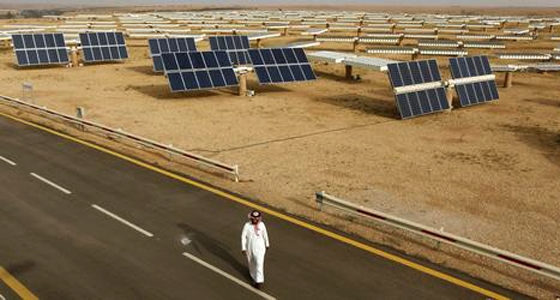The Gulf Cooperation Council (GCC) countries are set to invest $155 billion (SR581.25 billion) for the construction of energy generating plants from non-traditional sources, notably solar energy, local media reported quoting a specialized energy report.
However, the drive of energy firms from the private sector to renewable energy projects is still under the required level while the government-owned companies have big capitals to invest in this type of activity, which sometimes falls within “sovereign decisions,” the report, released by Abu Dhabi-based Crescent Petroleum, said.
Availability of funding ways to develop energy sources is among the major challenges facing both public and private sector companies in this regard, the report said.
In particular, the private sector firms bear the brunt of challenges to get the required funding and, if attained, could give them the ability to participate in energy decision-making processes and acquire an increasing share of investments, the report said.
The report said both the public and private sector companies had to jointly consider the possibility of going into joint stock companies, which would bring positive results at the level of companies, new stockholders, financial markets and the energy sector as well.
This tendency is hoped to provide financial flows at reduced costs with a view to boosting long-term investment activities, the report said. Accordingly, the step will allow (GCC) governments direct spending to activate and promote other productive sectors at the least costs with high efficiency, it added.
The report emphasized the growing tendency toward the IPO (initial public offering) for energy firms in light of inability of the current financial regulations and legislations to directly fund the expansion of energy projects, notably the establishment of a regional oil exchange market.
Experts say the six GCC countries have already envisioned solar installation projects which will generate more than 84 GW of power when complete in a three-year period.
Saudi Arabia, in particular, hopes to double its installed electricity capacity by building 54 GW of renewable energy by 2032, of which 41 GW will be obtained from the sun. Abu Dhabi also seeks to generate 7 percent of its electricity from renewable sources by 2020.
Arab News
28 October























































